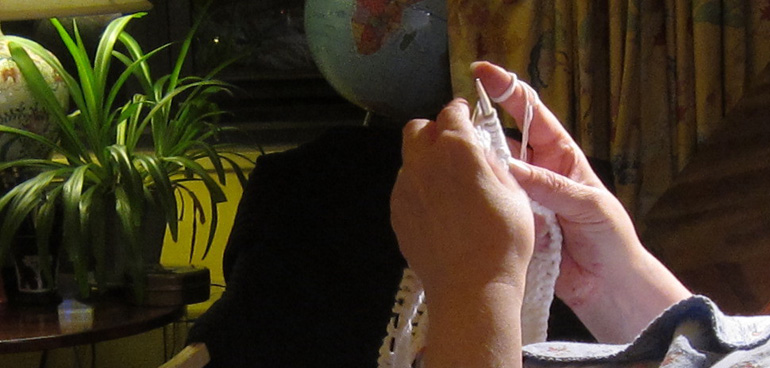Gotham Diary:
Tech Style
16 December 2011
Typical. The minute I feel restored to 3D by Remicade, I run around like a crazy person trying to do everything that was left undone during the previous fortnight. The result is as much a part of the rhythm of my life as the infusion itself: a day in bed. Ordinarily, I’m someone who likes to get out of bed. I may not be so keen on standing up and thinking, but staying in bed has become unappealing. This morning, I did not so much wake up as drift into a remake of Greta Garbo’s bedroom scenes in Grand Hotel (which I watched yesterday), only I was happy and perfectly content. While Kathleen read the paper, I sank in and out of dreams that were alarming simply because of their alternaty: at one point, I was pushing a grocery cart, clueless, at Fairway. What was I shopping for? What was I doing in Fairway? Even less pleasant was trying to take a sip from my water bottle: only in my dream was I holding it. I came to with a shudder.
I scratched my plans for the day, which were pretty ambitious. I was going to go to the movies, visit a toy store, and round up the holiday paraphernalia at the storage unit. Instead, I think that I’ll go back to bed.
***
But first, a word or two about Kurt Anderson’s Vanity Fair piece about the failure of style to change over the past twenty-plus years. This is something that I’d noticed myself. I came to the conclusion, voiced but not fully endorsed by Anderson, that we’ve been too preoccupied by the overhaul in our personal lives wrought by digital technology that we haven’t had much appetite for superficial change.
In some large measure, I think, it’s an unconscious collective reaction to all the profound nonstop newness we’re experiencing on the tech and geopolitical and economic fronts. People have a limited capacity to embrace flux and strangeness and dissatisfaction, and right now we’re maxed out. So as the Web and artificially intelligent smartphones and the rise of China and 9/11 and the winners-take-all American economy and the Great Recession disrupt and transform our lives and hopes and dreams, we are clinging as never before to the familiar in matters of style and culture.
But Anderson is happier, it seems to me, with a declinist reading of the matter: “After all, such a sensibility shift has happened again and again over the last several thousand years, that moment when all great cultures—Egyptian, Roman, Mayan, Islamic, French, Ottoman, British—slide irrevocably into an enervated late middle age.” There’s a fallacy here that is only beginning to be noticed by historians, who have come to see it as part of their déformation professionelle: the inclination to anthropomorphize cultures, to speak of them in terms of youth, vigorous prime, and decrepitude. What’s really being done is this: slices of the past are being weighed for their interest to us. Were the affluent families of the later Roman Empire and the dawning European kingdoms sensible of living in fallen times? I rather doubt it; on the contrary, they were preoccupied by the big new thing, which was Christianity, not only as a personal faith (a new idea in itself) but as a social network. Until very recently, historians have not found anything about Christianity as a social network to be interesting, not least because most they’ve grown up in an era of Christian retreat from intellectual life. But now we’re learning that we have a tendency to identify as robust those cultures that get to push other cultures around. Not so great. And while there are certainly periods in history of great catastrophe, they don’t appear on cue, in the order proposed by Thomas Cole’s suite of Course of Empire paintings.
Anyway, it struck me this morning that the simplest explanation is that the locus of change has shifted, from stuff to circuits, and that we have been taken through several booming cycles of style change by the guys who set style today: tech nerds. Why, they’re not even nerds anymore! They’re usually pretty hip. But they’re private about their stuff. (And, as closet libertarians, they’re fairly apolitical as well.) The only thing that they want to share is the newest wrinkle in the technological fabric. Because this is their time in the sun — well, we’ve put them there — they make sure that we’re all caught up in the frenzy. Our social network congregates at the Apple Store.

